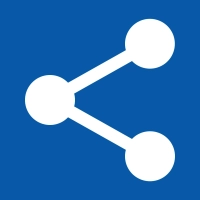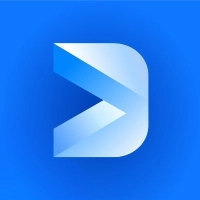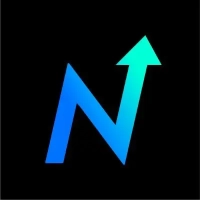Revolutionizing the Internet: Exploring the World of Decentralized Applications and Social Media
The internet has transformed the way we communicate, connect, and conduct business. But what if there was a way to take the power of the internet and make it even more secure, transparent, and independent? Enter decentralized applications and social media. In recent years, decentralized technologies like blockchain have emerged as a powerful force in digital innovation, disrupting traditional models and paving the way for a more decentralized and inclusive future. This blog explores the world of decentralized applications and social media, diving into the concepts of distributed networks, smart contracts, and peer-to-peer communities. November 18, 2023 13:05
Understanding Decentralized Applications (DApps) and Social Media
Decentralized applications, or DApps, are a key component of the decentralized internet revolution. Unlike traditional applications that are controlled by a central entity, DApps operate on a network of computers distributed across multiple locations. This distributed network ensures that no single party has control over the application, making it more secure, transparent, and resistant to censorship.
Social media platforms built on decentralized technology are also gaining momentum. These platforms offer users the ability to connect, share and engage with content, all while maintaining control over their personal data. By removing the power and influence of centralized authorities, decentralized social media aims to create a more democratic and user-centric online experience.
One of the most revolutionary aspects of decentralized applications and social media is the use of blockchain technology. Blockchain enables the creation of transparent and trustless systems through the use of smart contracts. These self-executing contracts automatically fulfill predefined conditions, eliminating the need for intermediaries and reducing the risk of fraud.
In the next section, we will delve deeper into the functionalities and potential applications of DApps and decentralized social media platforms. Stay tuned as we explore the democratizing power of these innovative technologies and their impact on the future of the internet. The possibilities are limitless, and the future is decentralized!
The Advantages of DApps over Traditional Applications
With the rapid rise of decentralized applications (DApps), it is important to understand the advantages they offer over traditional applications. One of the key benefits of DApps is their enhanced security. As DApps operate on a distributed network, there is no central point of failure, making them less vulnerable to attacks and censorship.
Additionally, DApps are inherently transparent and trustless. The use of blockchain technology ensures that all transactions and data are immutable, providing users with a high level of transparency and eliminating the need for intermediaries.
Moreover, DApps give users more control over their own data. Unlike traditional applications where personal information is collected and controlled by centralized authorities, DApps enable users to have full ownership and control over their data.
Furthermore, DApps promote a more democratic and inclusive online experience. By removing the monopoly of centralized authorities, DApps allow users to participate in decision-making processes and have a say in the direction of the platform.
In the next section, we will explore some real-world examples of successful DApps and delve into their specific advantages and use cases. Stay tuned to uncover how DApps are revolutionizing the internet and changing the way we interact with technology.
Exploring the Potential of Decentralized Social Media Platforms
Decentralized social media platforms have emerged as a compelling alternative to the dominant centralized ones. These platforms aim to address the issues of privacy, censorship, and control that have plagued traditional social media.
One prominent example is Steemit, a blockchain-based social media platform that rewards content creators with cryptocurrency. By using a decentralized structure, Steemit eliminates the need for a central authority to moderate or control the platform. Users have the power to shape the platform and determine what content gets rewarded.
Another noteworthy decentralized social media platform is Mastodon. Built on open-source technology, Mastodon operates as a federation of interconnected communities, called instances. This structure ensures that user data is not stored on a central server, thereby providing greater privacy and reducing the risk of data breaches.
Decentralized social media platforms offer a new level of freedom and control over content, privacy, and data. As more people recognize the need for these alternatives, it is clear that the internet landscape is undergoing a transformative shift. In the following section, we will explore the challenges and potential of decentralized applications in various industries. Stay tuned for more exciting insights into the world of DApps!
Challenges and Roadblocks in Adopting DApps and Decentralized Social Media
One of the key challenges in adopting decentralized applications (DApps) and decentralized social media platforms is the lack of mainstream awareness. While these platforms offer numerous benefits, such as increased privacy and control, many users are still unfamiliar with the concept and reluctant to explore alternatives to traditional social media.
Additionally, the scalability of DApps is a significant roadblock. As these platforms rely on blockchain technology, they often struggle with processing large volumes of data, resulting in slower transaction times and limited scalability. This poses a challenge in attracting a larger user base and accommodating increased usage.
Furthermore, regulatory hurdles and legal uncertainties surrounding cryptocurrencies, which often power DApps, create an additional obstacle to widespread adoption. Governments around the world are still figuring out how to regulate these technologies, and until there is clarity in the regulatory environment, DApps may face resistance from users and businesses alike.
Despite these challenges, the potential of DApps and decentralized social media in transforming various industries is immense. In the next section, we will explore some of the industries that stand to benefit the most from the decentralized revolution. Stay tuned as we dive deeper into the world of DApps and uncover their potential impact.
The Future of DApps and Decentralized Social Media
As we delve deeper into the world of decentralized applications (DApps) and decentralized social media platforms, it is essential to understand their potential impact on various industries. The future of DApps holds significant promises, and it is poised to revolutionize the way we interact, transact, and share information online.
One industry that stands to benefit greatly from the decentralized revolution is the financial sector. With the ability to make fast, secure, and transparent transactions, DApps have the potential to disrupt traditional banking systems and provide greater financial inclusion to the unbanked population.
Another industry that could see transformation is online marketplaces. Decentralized platforms can eliminate intermediaries, lower transaction costs, and ensure a fairer marketplace for buyers and sellers.
Healthcare is also an area where DApps can make a substantial impact. By enabling the secure sharing of medical records and empowering patients to have more control over their health data, decentralized apps can improve healthcare delivery and reduce inefficiencies.
In the next section, we will delve into these industries, exploring the specific ways DApps can revolutionize them and the challenges that need to be addressed for widespread adoption. Stay tuned as we uncover the potential of DApps and their impact on these sectors.
Embracing the Power of Decentralization
As we conclude our exploration into the world of decentralized applications (DApps) and decentralized social media platforms, it is evident that they hold immense promise for revolutionizing various industries. From finance to online marketplaces and healthcare, DApps have the potential to transform the way we conduct transactions, interact, and share information online.
However, widespread adoption of DApps still faces challenges that need to be addressed. These include regulatory frameworks, scalability issues, and user adoption. It is crucial for businesses, developers, and policymakers to work together to overcome these hurdles and embrace the power of decentralization.
The future of the internet lies in the hands of decentralized applications and social media platforms. By leveraging the benefits of transparency, security, and efficiency that they offer, we can create a more inclusive, fair, and trustless online ecosystem.
As we bid farewell to this exploration, let us continue to stay tuned and actively participate in the development and adoption of DApps, as they have the potential to reshape our digital world for the better. Together, let us embrace the power of decentralization.
User Comments (0)
Popular DeSo Apps










